Horse boarding is an essential service for horse owners who do not have the space or resources to keep their horses on their own property. It provides a safe and comfortable environment for horses to live, while also offering various amenities and services to meet their needs. However, the cost of horse boarding can vary significantly depending on several factors. Understanding these factors is crucial for horse owners to make informed decisions about where to board their horses and how much they can expect to pay.
Understanding the Factors that Affect Local Horse Boarding Prices
Several factors can influence the pricing of horse boarding in a particular area. One of the primary factors is the availability of land and resources. In areas where land is scarce or expensive, boarding facilities may have higher overhead costs, which can be reflected in their pricing. Additionally, the cost of living in the area can also impact boarding prices. Areas with a higher cost of living may have higher labor and operational costs, which can drive up the price of boarding.
Competition among boarding facilities is another factor that affects pricing. In areas with a high concentration of boarding facilities, competition can drive prices down as facilities try to attract clients. On the other hand, in areas with limited options, boarding facilities may have more pricing power and can charge higher rates.
The types of services offered by a boarding facility can also impact pricing. Facilities that offer additional amenities such as indoor arenas, trails, or specialized training programs may charge higher rates compared to basic boarding facilities.
The Importance of Researching Local Horse Boarding Options
Researching local horse boarding options is crucial for horse owners to find the best facility for their horses and budget. By conducting thorough research, horse owners can gather information about different facilities, compare prices and services, and make an informed decision.
There are several benefits to researching local horse boarding options. Firstly, it allows horse owners to find a facility that meets their specific needs and preferences. Different facilities offer different amenities and services, and by researching, horse owners can find a facility that aligns with their requirements.
Researching also helps horse owners understand the pricing landscape in their area. By comparing prices and services offered by different facilities, horse owners can get a sense of the average cost of boarding in their area and avoid overpaying.
There are several sources of information that horse owners can use when researching local horse boarding options. Online directories and websites dedicated to horse boarding can provide a comprehensive list of facilities in a particular area. Local equestrian communities and forums can also be a valuable source of information, as they often have firsthand experiences and recommendations.
When researching, it is essential to ask the right questions to gather all the necessary information. Some important questions to ask include:
– What types of boarding options are available (full board, partial board, self-care)?
– What amenities and services are included in the boarding fee?
– Are there any additional fees for services such as turnout or blanketing?
– What is the facility’s policy on vaccinations and health requirements?
– What is the facility’s emergency plan in case of illness or injury?
Comparing Boarding Services: What to Look for and What to Avoid
When comparing boarding services, there are several factors to consider to ensure the well-being and safety of your horse. Firstly, it is important to look for amenities that will meet your horse’s needs. These may include spacious stalls, ample turnout areas, quality hay and feed, access to clean water, and well-maintained pastures or arenas.
Safety measures should also be a top priority when evaluating boarding facilities. Look for facilities that have secure fencing, well-maintained barns and structures, fire safety measures in place, and knowledgeable staff who can handle emergencies.
It is also important to be aware of any red flags that may indicate a subpar facility. These may include overcrowded or unsanitary conditions, inadequate ventilation, lack of proper nutrition or care, and a general lack of professionalism or responsiveness from the facility staff.
How Location Affects Horse Boarding Prices: Urban vs Rural Areas
The location of a boarding facility can have a significant impact on pricing. In urban areas where land is limited and expensive, boarding facilities may have higher overhead costs, which can be reflected in their pricing. Additionally, the cost of living in urban areas tends to be higher, which can drive up labor and operational costs.
On the other hand, in rural areas where land is more abundant and less expensive, boarding facilities may have lower overhead costs, which can result in lower pricing. The cost of living in rural areas is also generally lower, which can contribute to lower boarding prices.
Both urban and rural areas have their pros and cons when it comes to horse boarding. Urban areas may offer more convenience and access to amenities such as trails or shows. However, they may also have limited turnout space and higher levels of noise and activity, which may not be ideal for some horses.
Rural areas, on the other hand, may offer more space and tranquility for horses. However, they may be farther away from amenities or require longer travel times for horse owners.
Evaluating the Quality of Horse Boarding Facilities: Amenities and Safety Measures

The quality of a horse boarding facility is crucial for the well-being and happiness of your horse. When evaluating the quality of a facility, it is important to look for amenities that will meet your horse’s needs. These may include spacious stalls with proper bedding, ample turnout areas with safe fencing, access to clean water at all times, quality hay and feed, well-maintained pastures or arenas for exercise, and access to trails or other riding areas.
Safety measures should also be a top priority when evaluating the quality of a facility. Look for facilities that have secure fencing, well-maintained barns and structures, fire safety measures in place, and knowledgeable staff who can handle emergencies.
It is also important to consider the overall cleanliness and maintenance of the facility. A clean and well-maintained facility is not only more pleasant for your horse but also indicates that the facility takes pride in providing a safe and healthy environment.
Comparing Horse Boarding Contracts: Understanding the Fine Print
When considering a horse boarding facility, it is essential to carefully review the boarding contract before making any commitments. The contract will outline the terms and conditions of the boarding agreement, including pricing, services provided, and any additional fees or requirements.
Some important clauses to look for in a boarding contract include:
– Pricing and payment terms: Make sure the pricing is clearly outlined, including any additional fees or charges. Understand the payment schedule and any late payment penalties.
– Services provided: Ensure that the contract clearly states what services are included in the boarding fee and what services may incur additional charges.
– Health requirements: Check if the facility has specific vaccination or health requirements for horses. Understand what documentation or proof may be required.
– Termination clause: Review the termination clause to understand the process for ending the boarding agreement and any notice periods required.
It is important to thoroughly understand all the terms and conditions outlined in the contract before signing. If there are any clauses that you are unsure about or uncomfortable with, it is advisable to seek legal advice or negotiate with the facility.
The Impact of Seasonal Changes on Horse Boarding Prices
Seasonal changes can have an impact on horse boarding prices. In some areas, boarding facilities may adjust their pricing based on seasonal demand or changes in operational costs.
For example, during peak riding seasons such as spring and summer, when more people are actively riding and showing their horses, boarding facilities may increase their prices to reflect the higher demand. On the other hand, during slower seasons such as winter, when fewer people are riding or showing, boarding facilities may offer discounted rates or special promotions to attract clients.
It is important for horse owners to be aware of these seasonal changes and plan accordingly. If you have a specific budget or timeline, it may be beneficial to research and book boarding facilities in advance to secure the best rates.
Negotiating Horse Boarding Prices: Tips and Strategies
Negotiating horse boarding prices can be a way to find a more affordable option that meets your needs. Here are some tips and strategies for successful negotiation:
1. Do your research: Before entering into negotiations, gather information about average pricing in your area and the services offered by different facilities. This will give you a better understanding of what is reasonable to ask for.
2. Be prepared to walk away: If a facility is not willing to negotiate or meet your budget, be prepared to walk away and explore other options. It is important not to settle for a facility that does not meet your needs or budget.
3. Highlight your value as a client: If you have multiple horses or are willing to commit to a long-term contract, emphasize these factors as bargaining chips. Facilities may be more willing to negotiate if they see the potential for long-term business.
4. Consider non-monetary incentives: If a facility is unable to lower their pricing, consider asking for additional services or amenities instead. This could include extra turnout time, access to specialized training programs, or discounted rates on additional services such as lessons or clinics.
5. Be respectful and professional: Approach negotiations with a respectful and professional attitude. Remember that the facility is running a business and has their own costs and considerations. Being polite and understanding can go a long way in building a positive relationship.
Balancing Cost and Quality: Finding the Best Horse Boarding Deal for Your Budget
When searching for horse boarding, it is important to find a balance between cost and quality. While it may be tempting to choose the cheapest option available, it is crucial to consider the well-being and happiness of your horse.
Finding the best deal for your budget involves considering the amenities and services offered by different facilities and evaluating their quality. Look for facilities that offer a good balance of affordability and quality. It may be worth investing a little more in a facility that provides better care, amenities, and safety measures for your horse.
It is also important to consider the long-term costs of horse ownership. Investing in a facility that provides proper care and amenities can contribute to your horse’s overall health and happiness, which can save you money on veterinary bills and other expenses in the long run.
The Benefits of Finding Affordable Horse Boarding: Investing in Your Horse’s Health and Happiness
Finding affordable horse boarding is not just about saving money; it is about investing in your horse’s health and happiness. Affordable boarding options can provide a safe and comfortable environment for your horse without breaking the bank.
By finding affordable boarding, you can allocate more of your budget towards other aspects of horse care, such as veterinary expenses, training, or equipment. This can contribute to your horse’s overall well-being and performance.
Affordable boarding options also allow you to have peace of mind knowing that your horse is being well-cared for without putting a strain on your finances. This can reduce stress and allow you to enjoy your time with your horse without worrying about financial burdens.
Researching and understanding horse boarding pricing and options is crucial for horse owners to make informed decisions about where to board their horses. Factors such as availability of land, cost of living, competition among facilities, and types of services offered can all impact pricing.
When researching local options, it is important to gather information from various sources, ask the right questions, and compare amenities and safety measures. Evaluating the quality of facilities, understanding boarding contracts, and considering seasonal changes can also help horse owners find the best deal for their budget.
Finding affordable horse boarding is not just about saving money; it is about investing in your horse’s health and happiness. By finding a facility that provides quality care and amenities at an affordable price, you can ensure that your horse is well-cared for without breaking the bank.
If you’re interested in learning more about horse boarding facilities, Liv Stables has a helpful article titled “Top Horse Boarding Facilities in Ontario.” This article provides valuable information on some of the best boarding options available in the area. Whether you’re looking for a luxury choice or simply want to ensure your horse receives top-notch care, this article will guide you in finding the perfect facility. Check it out here.
FAQs
What is horse boarding?
Horse boarding is the practice of keeping horses on someone else’s property for a fee.
What are the different types of horse boarding?
The different types of horse boarding include full board, partial board, self-care board, and pasture board.
What is full board?
Full board is when the horse owner pays a fee for the horse to be fully taken care of, including feeding, stall cleaning, and turnout.
What is partial board?
Partial board is when the horse owner pays a fee for some services, such as feeding and stall cleaning, but is responsible for other tasks, such as turnout.
What is self-care board?
Self-care board is when the horse owner is responsible for all aspects of the horse’s care, including feeding, stall cleaning, and turnout.
What is pasture board?
Pasture board is when the horse is kept in a pasture with other horses and has access to food and water, but the owner is responsible for all aspects of the horse’s care.
What factors affect horse boarding prices?
Factors that affect horse boarding prices include location, type of boarding, amenities offered, and level of care provided.
What is the average cost of horse boarding?
The average cost of horse boarding varies depending on location and type of boarding, but can range from $200 to $800 per month.
What amenities are typically offered at horse boarding facilities?
Amenities that may be offered at horse boarding facilities include indoor and outdoor arenas, trails, wash racks, tack rooms, and access to trainers and instructors.
What should I look for in a horse boarding facility?
When looking for a horse boarding facility, it is important to consider the level of care provided, the amenities offered, the location, and the cost. It is also important to visit the facility and speak with the staff and other boarders to get a sense of the atmosphere and community.

